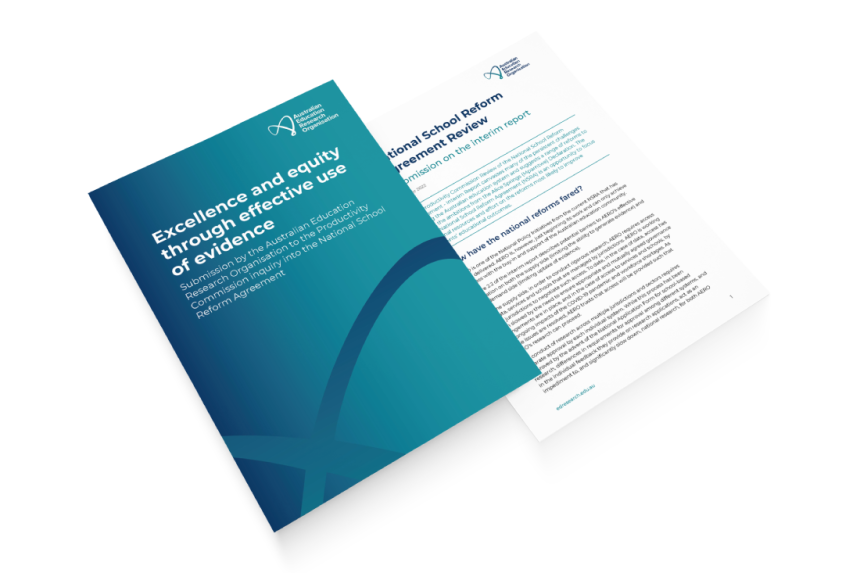
The Australian Education Research Organisation (AERO) has welcomed the Productivity Commission’s Review of the National School Reform Agreement (NSRA), released today.
AERO’s Chief Executive Officer Dr Jenny Donovan said the report reflected key points from AERO’s submission to the Productivity Commission inquiry into the NSRA.
'Our submission emphasised the need for a coherent national approach to supporting low-performing students, put forward a plan to improve the "expert teacher" career path, and outlined the importance of a consistent and systematic approach to implementing evidence-based teaching practices,' Dr Donovan said.
'AERO’s work is generating an evidence base that addresses many of the issues raised in the Productivity Commission’s report, with projects to support students lacking in foundational literacy and numeracy skills, student wellbeing, and literacy and numeracy outcomes more broadly.
'Research shows that student wellbeing can be improved by using an evidence-based teaching approach, because when students succeed in their learning, their wellbeing improves,' Dr Donovan said.
The establishment of AERO 'was identified by many participants as one of the NSRA’s key achievements', according to the Productivity Commission report, which also notes AERO will need time to establish itself and have a greater impact on practice.
AERO was created as part of the National School Reform Agreement to help build the national education evidence base.
'Adequate funding is important but it is how those funds are used that is critical – this is where the evidence base must inform decisions,' Dr Donovan said.
Media contact
For AERO media enquiries please contact:
Raina Hunter
media@edresearch.edu.au